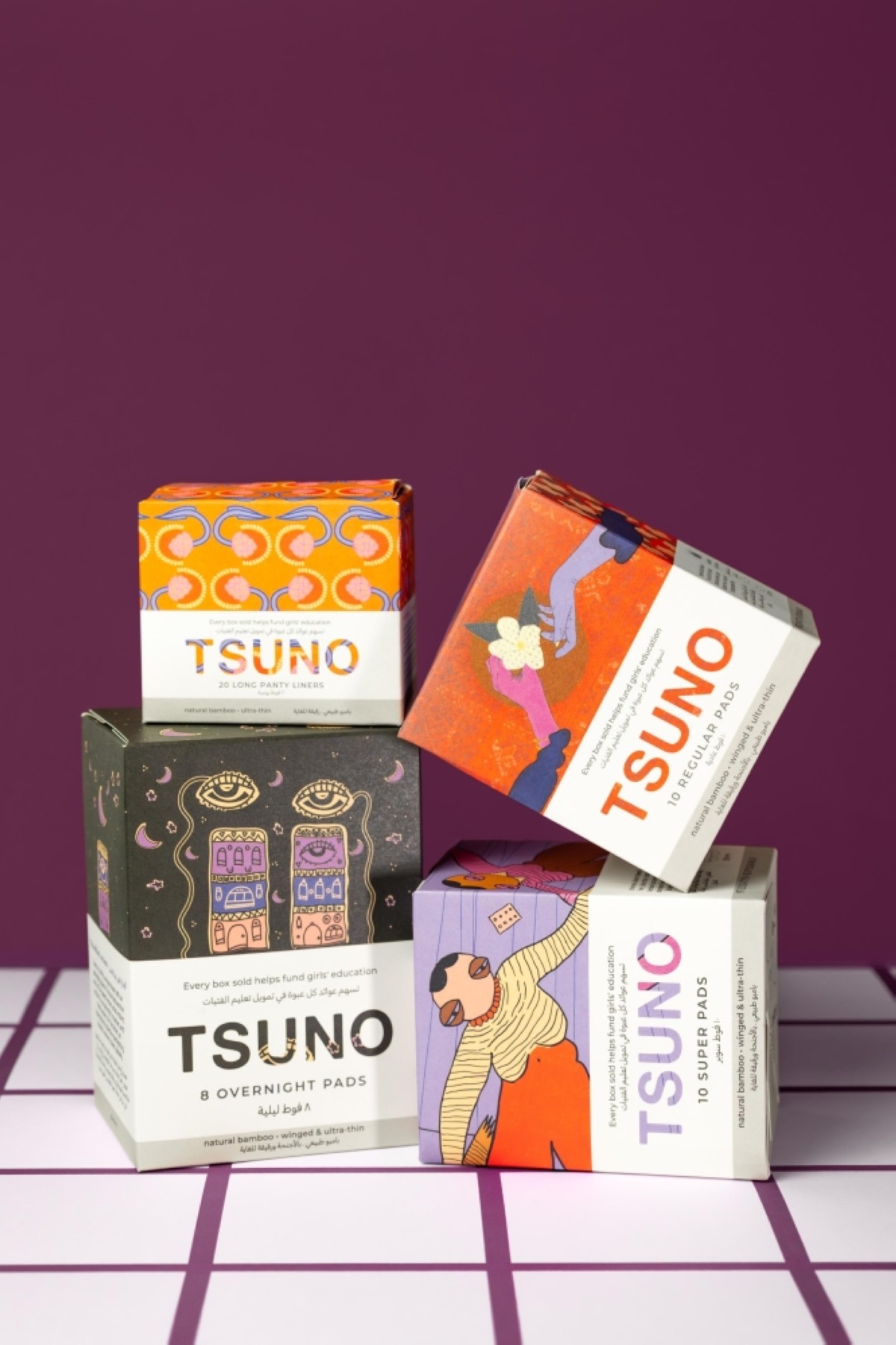By Dena Al-Fadhli
KUWAIT: For years, women in Kuwait have reported adverse reactions from widely available menstrual products, ranging from mild irritation to serious infections. Despite visits to clinics and seeking advice from friends, the link between these symptoms and menstrual care remained unclear for many.
As more research and advocacy work is being done about this topic worldwide, some women across the country have decided to take matters into their own hands — educating themselves about menstrual products and seeking safer alternatives.
Hind Al-Khatresh, a Kuwaiti entrepreneur and founder of a clean, toxin-free menstrual care line, saw the growing need firsthand. “I started to realize the period care market in Kuwait was very underserved. There was so much untapped potential and people who were hungry for something different than what they had been given.”
A lack of education
A 24-year-old Egyptian woman living in Kuwait, who chose to remain anonymous, is one of these women. “I tried so many brands and none of them worked for me,” she said.
“Once I found out how many chemicals are in them, I started feeling super uneasy every time I had to wear one. Sometimes I even wish I could stop my period completely just to avoid them.”
Her statement about the chemicals in menstrual products is supported by recent studies. Environment International analyzed 77 menstrual products – including pads, panty liners, and tampons – and found that all contained measurable levels of endocrine-disrupting chemicals (EDCs) such as phthalates, parabens, bisphenols and triclocarban. These chemicals can interfere with hormonal systems, potentially contributing to reproductive issues, thyroid disorders and even certain cancers with long-term exposure.
The findings are especially concerning given the research published in the British Journal of Dermatology, which shows that the skin around the vaginal and vulvar areas is more permeable than other parts of the body – making it more susceptible to absorbing harmful substances.
For many young women, the idea of choosing ‘the right’ menstrual products isn’t something they’re ever taught to consider. Before launching her own brand, Al-Khatresh recalls how most women would simply use whatever products were available without knowing there were alternatives: “Everyone is on autopilot when it comes to going to the grocery store and buying pads. ‘That’s what my mom uses or my older sister, so I’ll just use it too.’”
Howra Al-Yakoub, a woman in her 30s, echoes this, recalling that when she was younger, her understanding of feminine hygiene products was very narrow: “My knowledge at that age was limited to knowing you get your period once a month and have to wear a pad, without any real insight into why my body was reacting negatively.”
‘Change it every hour’
According to Dr Dalia Ismail, a gynecologist in Kuwait, adverse reactions from the use of pads are not uncommon, especially among younger women. She notes that she gets many patients who come to her with symptoms of a urinary tract infection, but when she asks about their menstrual hygiene routine, they are often surprised there is even a connection.
She explains, “most conventional pads are not breathable and made with plastic or scents that are not supposed to be used for an area that is highly sensitive. Sadly, they are not made to be worn for probably more than an hour, but most women don’t know that because that’s not what is advertised on the packaging. Also, it’s not always possible to change it every hour.”
A lack of proper menstrual hygiene education is a global concern. A UK-based survey of 1,000 menstruating adults found that 23 percent of individuals aged 25 and under were not shown how to use menstrual products before their first period. This lack of preparation led to 25 percent experiencing public leaks and 16 percent suffering pain due to improper use of sanitary products.
These statistics reflect a reality that resonates with many young women in Kuwait. One young Kuwaiti student, who chose to remain anonymous, detailed that she would continuously get painful rashes after using menstrual products: “I kept ignoring it because I thought it was normal and that was just part of the female experience, until I actually ended up going to the hospital multiple times because of bacteria overgrowth.”
The lack of education is compounded by cultural stigma surrounding gynecological care. Al-Yakoub notes that in Kuwait, it’s still uncommon for unmarried women to visit a gynecologist, which prevents many from accessing the medical support and information they need.
Left without guidance, these two women turned to the Internet to understand what exactly was going on. They were not alone. The 24-year-old Egyptian woman recalls discovering the likely cause of her symptoms after reading a viral thread about a popular menstrual hygiene brand. “It was a brand almost every woman in my family used. After reading more, I realized I should stay away,” she reasoned.
Bridging the gap
While this awareness has put some pressure on companies to respond to the growing health concerns, many still fall short of addressing the diverse and holistic needs of women.
Al-Khatresh attributes this disconnect to the fact that many mainstream menstrual products aren’t created by women themselves. “It’s really hard to rely on mainstream companies to make a change if they are continually led by men who can’t relate to the audience at all. All they see are numbers on a spreadsheet.”
Al-Khatresh designed her brand, Tsuno, with women’s health concerns in mind. But it’s not just about the product. For Al-Khatresh, meaningful change begins with awareness. She’s working to dismantle the silence and stigma that prevent many women in Kuwait from learning how to care for their bodies safely and confidently. Alongside a team of educators and designers, she develops illustrated booklets for students that teach the basics of menstrual hygiene in a clear, age-appropriate, and culturally sensitive way – laying the groundwork for a more informed and empowered generation.


















